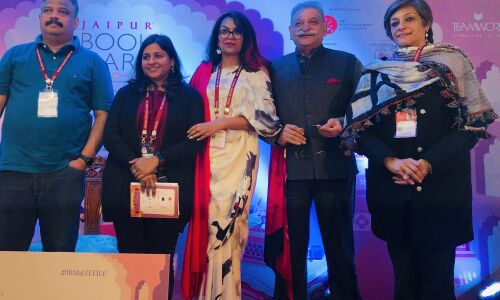Jaipur BookMark - Making a Mark
12 Feb 2019 1:32 PM IST
It is common knowledge that the Jaipur Literature Festival (JLF) has grown to be the largest free literature festival in the world. However, what is interesting to see is the success of the Jaipur BookMark (JBM), a segment of JLF which deals with the business of books.
0
Next Story




